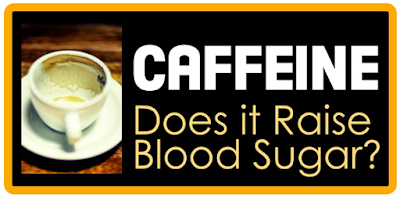How does coffee and tea affect blood sugar?
Who doesn’t love some morning coffee? Or, on cold days, a nice hot cup of tea. Does drinking coffee or tea affect one’s blood glucose levels?
Should healthy adults be concerned about coffee or tea and blood glucose levels?
The Mayo Clinic says that for healthy adults, caffeine will probably have no noticeable effects on their blood sugar or blood glucose levels. Studies have found that up to 400 milligrams of caffeine is safe for most of us. A cup of coffee has about 120-180 milligrams of caffeine and most adults drink about 2 cups of coffee a day. FDA says healthy adults can consume up to 400 mg of caffeine a day which equates to about 4-5 cups of coffee a day, or 10 cans of soda, or 2 “energy shot” drinks. (See: Caffeine – good or bad for your health?)
Can drinking coffee or tea reduce chances of getting type 2 diabetes?
Some studies have found that coffee, tea, and other drinks with caffeine can lead to weight loss and a lower body mass index (BMI). This in turn can lead to a reduced risk of type 2 diabetes. How much coffee? Each cup beyond 1 cup lowered the risk of type 2 diabetes by 7%. But it didn’t have to be caffeinated coffee. This study also found that decaf lowered one’s risk of type 2 diabetes by 6% a cup.
What if you have diabetes?
Coffee:
Drinking black coffee does not seem to affect blood sugar levels directly. But it may affect insulin sensitivity. There are many compounds in coffee that are good for you including magnesium, chromium, and polyphenols. These compounds may help improve insulin sensitivity. People with diabetes can enjoy decaf coffee and still get the benefits of the minerals and antioxidants in coffee.
WebMD notes that “People with diabetes who are regular coffee drinkers don’t have higher blood sugar levels than those who aren’t.” But for others, caffeine intake can lead to a spike in blood sugar. If coffee does spike your blood sugar, then switch to decaf as decaf won’t have the “same effect on your blood sugar or insulin”.
But coffee can affect each person differently. “If you have diabetes or if you find it hard to control your blood sugar, limiting the amount of caffeine in your diet might be helpful. Talk to a member of your healthcare team if you have questions or concerns about caffeine.”
Teas
Teas can have different effects on blood sugar.
- Black tea: Contains polyphenols that may help improve insulin sensitivity and regulate blood sugar.
- Green tea: Also rich in polyphenols, it may have a similar positive impact on blood sugar.
- Herbal teas: Varieties like chamomile or peppermint are usually caffeine-free and unlikely to affect blood sugar.
If you are concerned about blood sugar levels, choosing decaffeinated versions of coffee and tea are better choices.
How does what you add to your coffee affect blood sugar levels?
Adding creamers or sugar to your coffee can increase blood sugar levels. If you like “cream” in your coffee, try some low-fat milk.
Conclusion: Caffeine affects people differently. For healthy adults, drinking coffee doesn’t seem to affect blood sugar levels. But for people with diabetes, “caffeine might affect the way your body uses insulin”. This in turn can lead to higher or even lower blood sugar levels. “For some people with diabetes, about 200 milligrams of caffeine can cause this change. For others, it may have no significant effect on blood sugar”. Remember, while coffee and tea can be enjoyable, it is essential to be mindful of their impact on blood sugar, especially if you have diabetes. Always consult with a healthcare professional for personalized advice.
Sources: Mayo Clinic , consume , soda , Caffeine – good or bad for your health? , studies , risk, coffee , coffee , WebMD , person , Teas , add , diabetes Image sources: Caffeine and blood sugar , Chamomile tea , Coffee







Comments
Post a Comment